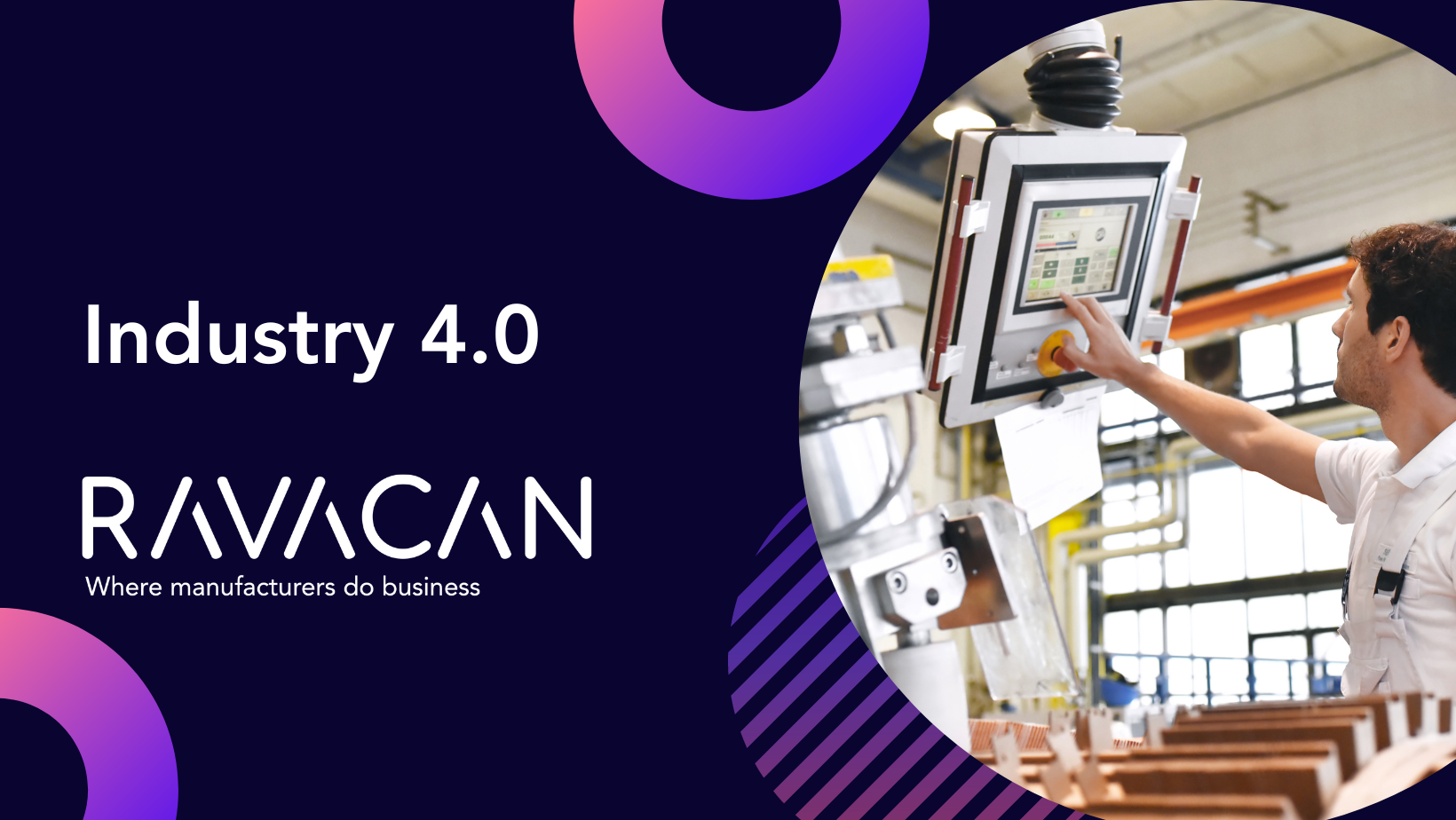With Industry 4.0, Supply chain is key in the rise of smart factories

Historical Context and Origin of Industry 4.0
Before we start, we must explain Industry 4.0 and the succession of industrial revolutions. Industry 4.0 is a term used to describe the fourth industrial revolution. The term "Industry 4.0" was coined in Germany in 2011 as part of a strategic initiative to promote the computerization of manufacturing. The initiative, called "Industrie 4.0", was developed by a group of representatives from the German government, academia, and industry. The concept of Industry 4.0 is often attributed to the German engineer and economist Klaus Schwab, who wrote about the Fourth Industrial Revolution in his book "The Fourth Industrial Revolution" published in 2016. However, the specific term "Industry 4.0" was not used in Schwab's book.
Historical Context: Understanding the Industrial Revolutions that Led to Industry 4.0
The industrial revolutions before the Fourth Industrial Revolution were:
The First Industrial Revolution (18th-19th centuries): This was marked by the introduction of mechanized production processes powered by water and steam and the growth of factories and mass production.
The Second Industrial Revolution (late 19th-early 20th century): This was marked by the introduction of mass production processes powered by electricity, the assembly line, and the development of new industries like steel, chemicals, and petroleum.
The Third Industrial Revolution (1960s-2000s): This was marked by the introduction of electronics, computers, automation, and information technology to optimize production and manufacturing processes.
Each of these revolutions brought significant changes in the way goods were produced, distributed, and consumed, and had a profound impact on society, including the growth of urbanization, the rise of new industries, and changes in the nature of work and employment. The Fourth Industrial Revolution builds upon these previous revolutions. It represents a new era of technological advancement characterized by integrating advanced technologies such as the Internet of Things (IoT), artificial intelligence (AI), and cloud computing. This integration is making manufacturing more efficient, productive, and cost-effective.
Key Technologies Powering Industry 4.0: From IoT to Augmented Reality
Industry 4.0 is characterized by the integration of several advanced technologies that work together to create a more efficient, connected, and intelligent manufacturing environment. Some of the key technologies used in Industry 4.0 include:
Internet of Things (IoT): This technology allows machines, devices, and sensors to be connected and communicate with each other, providing real-time data on production processes, equipment performance, and other critical metrics.
Artificial Intelligence (AI): AI technologies such as machine learning and deep learning enable machines and systems to learn from data, make predictions, and take actions based on that data without the need for human intervention.
Big Data Analytics: The massive amounts of data generated by IoT devices and other sensors can be analyzed using advanced analytics tools to identify patterns, trends, and insights that can help optimize manufacturing processes and improve decision-making.
Cloud Computing: Cloud computing allows for the storage and processing of large amounts of data in a centralized location, enabling real-time access to information and the ability to scale up or down as needed.
Additive Manufacturing: Also known as 3D printing, additive manufacturing enables the creation of complex parts and components using digital design files, reducing waste and speeding up the prototyping and production process.
Cybersecurity: As the number of connected devices and systems increases, so does the risk of cyber attacks. Therefore, cybersecurity technologies are essential for protecting critical systems and data.
Augmented Reality (AR): AR technologies can provide workers with real-time information and instructions while on the job, improving productivity and reducing errors.
These technologies work together to create a smart factory environment where machines, systems, and people can collaborate and communicate in real-time, resulting in greater efficiency, productivity, and flexibility in the manufacturing process.
The role of Supply chain management in this new Industry 4.0
In today's manufacturing landscape, most organizations outsource a significant portion of their operations to suppliers and contract manufacturers. In fact, according to some estimates, manufacturers outsource the equivalent of more than 70% of their revenues. As a result, it's crucial to include suppliers and supply chain management in any Industry 4.0 initiative.
Improving manufacturing operations without improving data flow between clients, suppliers, and contract manufacturers means missing out on real savings and agility. Procurement departments should make sure that if their organization is investing in digitalizing their manufacturing, they also allocate budgets to procurement and supply chain management.
By including suppliers and supply chain management in Industry 4.0 initiatives, organizations can improve visibility into their supply chains, reduce lead times, and optimize inventory levels. With better data flow and communication between all parties, manufacturers can better manage their supply chains, reduce waste, and improve agility.
Conclusion: Suppliers and supply chain are at this heart of this new industrial revolution
In conclusion, Industry 4.0 is transforming the manufacturing industry by introducing new technologies and advancements. The benefits of Industry 4.0 include increased efficiency, productivity, and cost-effectiveness. As we move further into the future, it is clear that the advancements of Industry 4.0 will play a significant role in shaping the manufacturing industry.
However, Industry 4.0 should not be limited to improving manufacturing processes alone. Including suppliers and supply chain management in Industry 4.0 initiatives is crucial for realizing the full potential of these technologies and achieving real savings and agility. Procurement departments should work closely with manufacturing teams to ensure that their organization is investing in digitalizing their entire supply chain and not just their manufacturing processes.
Copyright © 2022 Ravacan | All rights reserved

